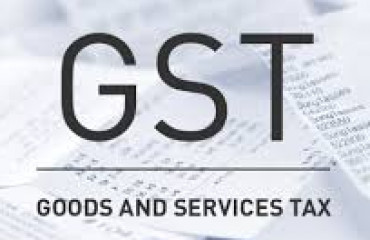
The Goods and Services Tax (GST) Council will consider proposals to decriminalize GST law and to set up appellate tribunals to resolve disputes at its next meeting on 17 December, a government official said.
The Goods and Services Tax (GST) Council will consider proposals to decriminalize GST law and to set up appellate tribunals to resolve disputes at its next meeting on 17 December, a government official said.
The 48th meeting of the Council will consider proposals by a group of ministers led by Dushyant Chautala, deputy chief minister of Haryana, which examined the changes needed in GST laws to make them conform with various court orders concerning different aspects of tribunals.
Setting up tribunals across the country is expected to help in quickly resolving GST-related disputes, improve ease of doing business and reduce case load in higher courts. The GST appellate tribunal (GSTAT) is the forum of the second appeal in GST laws. The first appeal lies with tax officials. GSTAT is also the first common forum for dispute resolution between the Centre and states.
You might also like
How mutual funds are betting on long-term India story
The AI chatbot that has the whole world in a flutter
Edelweiss MF's Bharat Bond ETF: Invest or not?
Being a common forum, GSTAT is expected to ensure uniformity in the redressal of disputes and in implementing GST across the country.
The council will also consider decriminalizing GST law to improve ease of doing business and reduce compliance burden. The idea is to raise the monetary threshold for prosecution and to distinguish between procedural or technical lapses and serious offences intended to evade taxes. GST laws now prescribe various jail terms for offences in which the tax amounts involved are more than ₹1 crore.
The government earlier decriminalized the Companies Act, making several offences compoundable in addition to rationalizing the penalties.
The council may also discuss a report on the tax framework for online gaming, horse racing and casinos if a ministerial group led by Meghalaya chief minister Conrad Sangma submits its report.
While there is broad convergence of views within the panel for a uniform 28% GST rate for the three sectors, the base on which the tax rate should apply remains undecided, Mint reported on 22 November. The GST Council will have the benefit of views from individual members of the ministerial panel for decision-making. It remains to be seen if the council has to resort to voting to decide on the taxation framework for these industries.
The person cited above said a ministerial group on rate rationalization has got a proposal to reduce the GST rate on health insurance policies, but the panel is yet to submit its report.
An email sent to the finance ministry and the GST secretariat on Monday seeking comments remained unanswered at the time of publishing.
Elsewhere in Mint
In Opinion, Nouriel Roubini says the mother of all stagflationary debt crises is coming. Amit Kapoor & Bibek Debroy tell how to make India more competitive. Parmy Olson says Telegram could be the future of Twitter. Long Story narrates how Dubai is luring India's tech talent.
